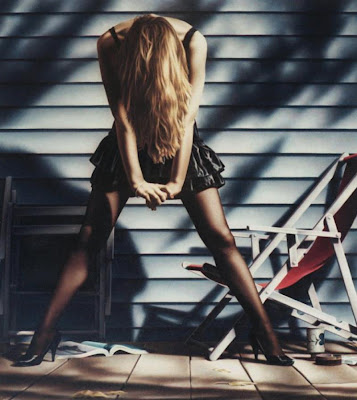
Lembro-me
agora que tenho de marcar um encontro contigo, num sítio em que ambos nos
possamos falar, de facto, sem que nenhuma das ocorrências da vida venha
interferir no que temos para nos dizer. Muitas vezes me lembrei de que esse
sítio podia ser, até, um lugar sem nada de especial, como um canto de café, em
frente de um espelho que poderia servir de pretexto para reflectir a alma, a
impressão da tarde, o último estertor do dia antes de nos despedirmos, quando é
preciso encontrar uma fórmula que disfarce o que, afinal, não conseguimos dizer.
É que o amor nem sempre é uma palavra de uso, aquela que permite a passagem à
comunicação; mais exacta de dois seres, a não ser que nos fale, de súbito, o
sentido da despedida, e que cada um de nós leve, consigo, o outro, deixando
atrás de si o próprio ser, como se uma troca de almas fosse possível neste
mundo. Então, é natural que voltes atrás e me peças: "Vem comigo!", e devo
dizer-te que muitas vezes pensei em fazer isso mesmo, mas era tarde, isto é, a
porta tinha-se fechado até outro dia, que é aquele que acaba por nunca chegar, e
então as palavras caem no vazio, como se nunca tivessem sido pensadas. No
entanto, ao escrever-te para marcar um encontro contigo, sei que é irremediável
o que temos para dizer um ao outro: a confissão mais exacta, que é também a mais
absurda, de um sentimento; e por trás disso, a certeza de que o mundo há-de ser
outro no dia seguinte, como se o amor, de facto, pudesse mudar as cores de céu,
do mar, da terra, e do próprio dia em que nos vamos encontrar, que há-de ser um
dia azul, de verão, em que o vento poderá soprar do norte, como se fosse daí que
viessem, nesta altura, as coisas mais precisas, que são as nossas: o verde das
folhas e o amarelo da pétalas, o vermelho do sol e o branco dos
muros.
Nuno Júdice





































